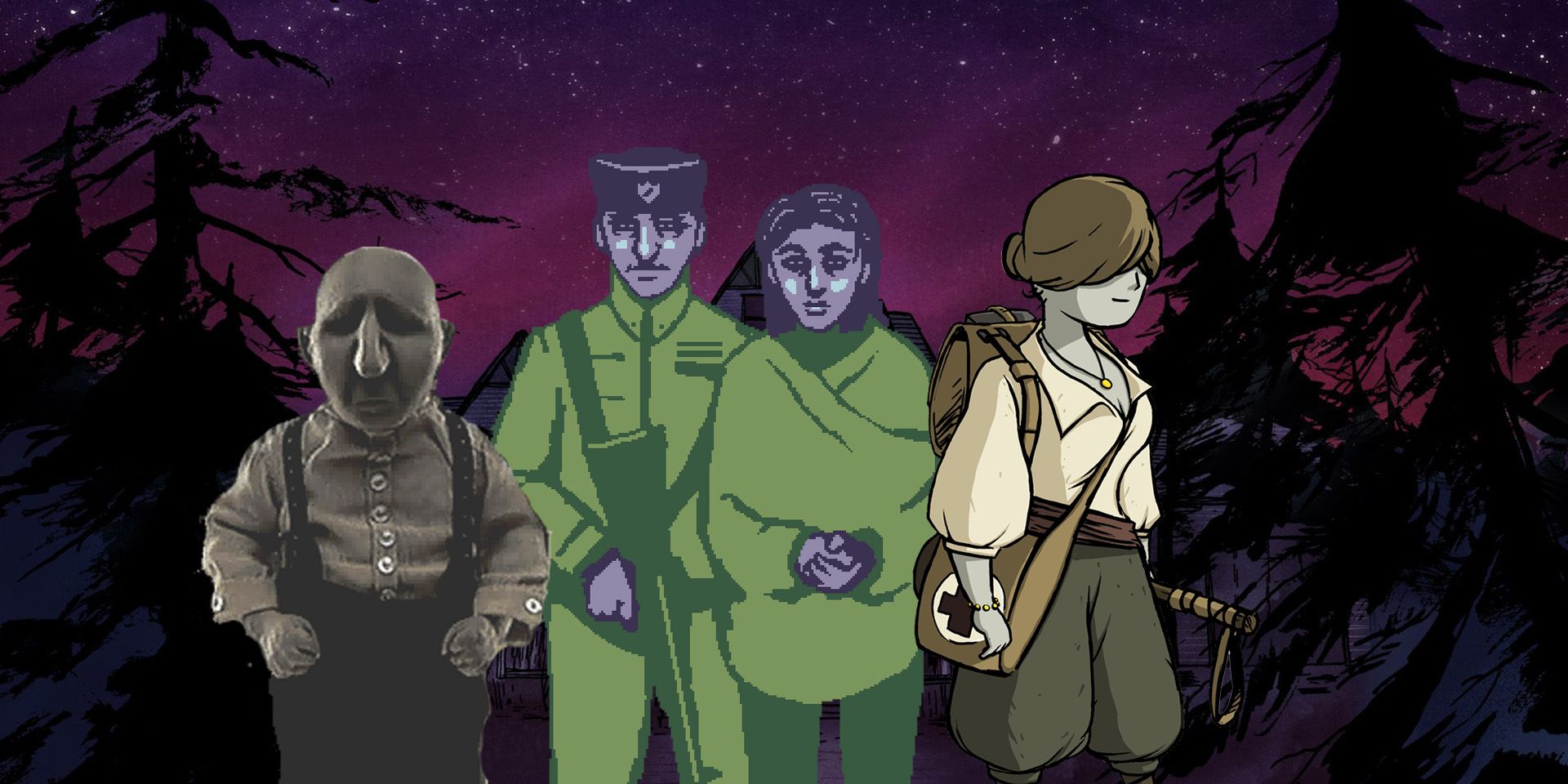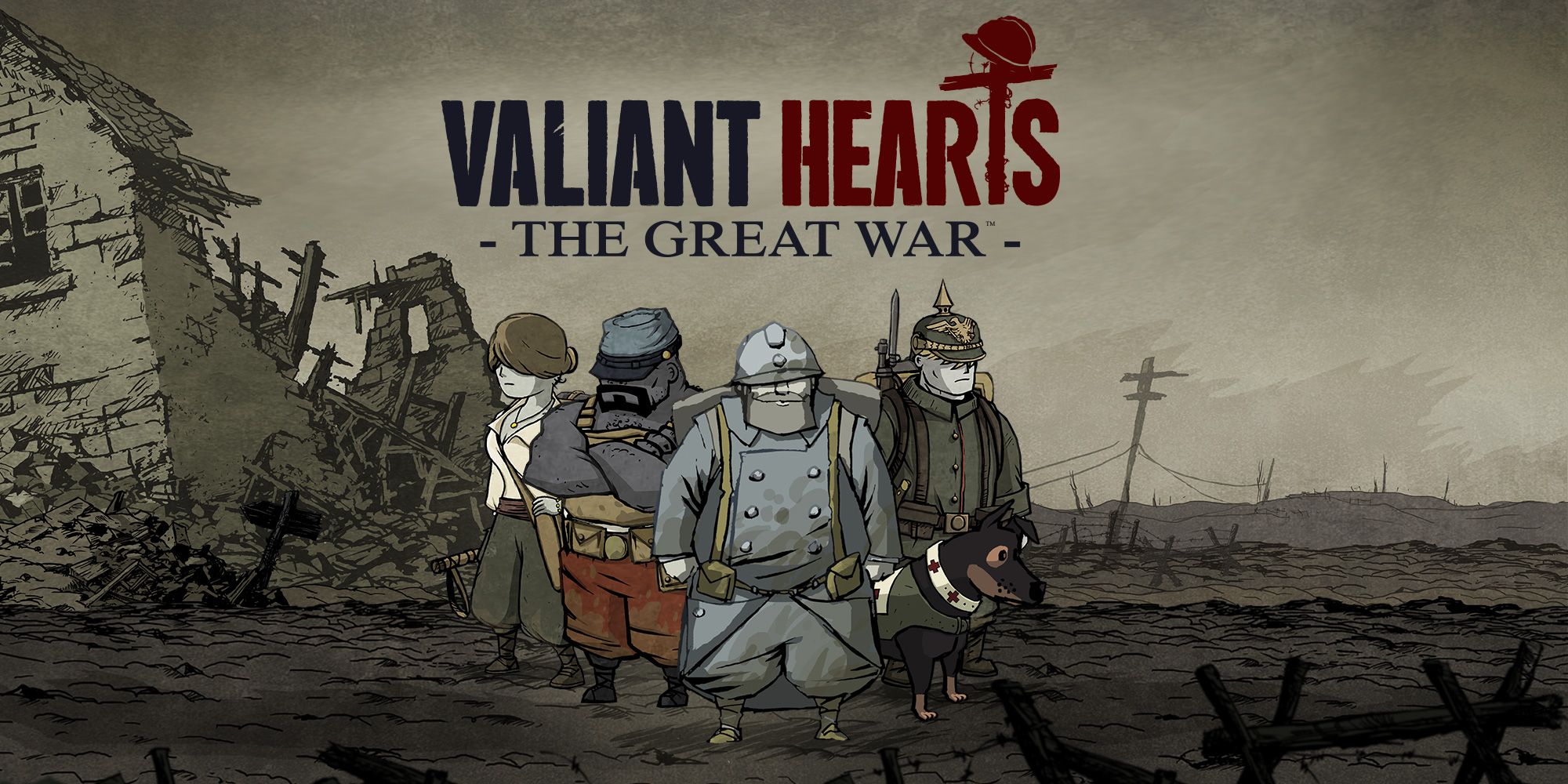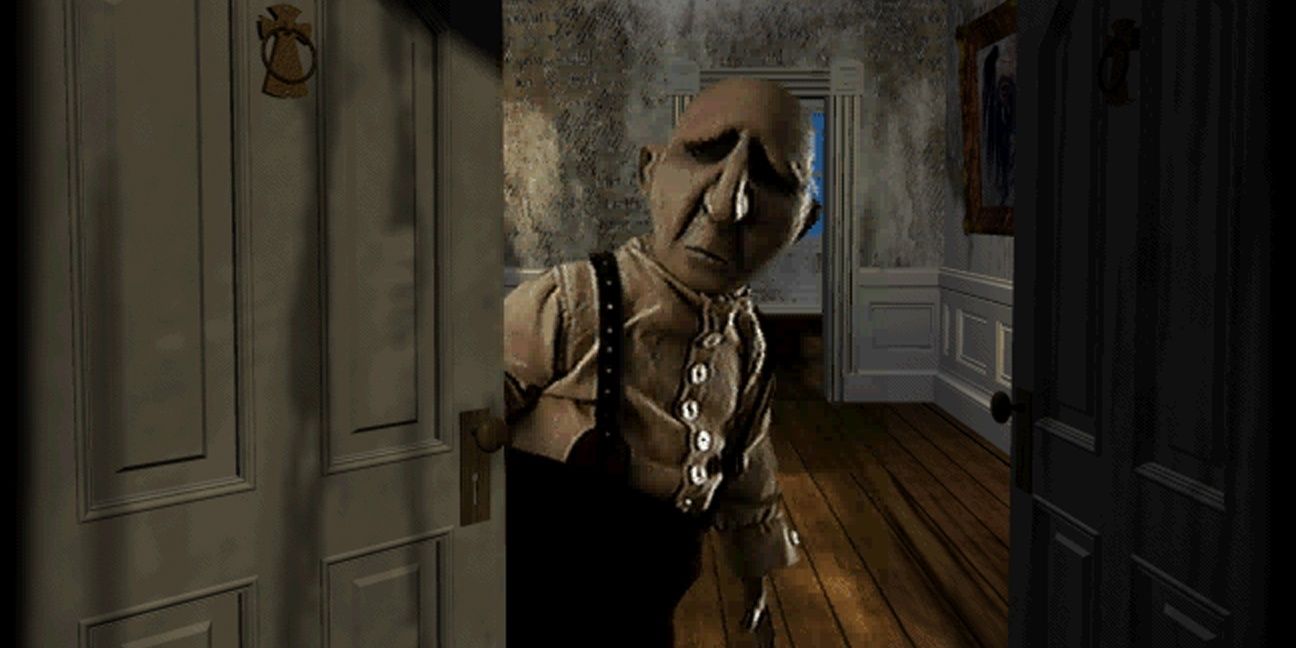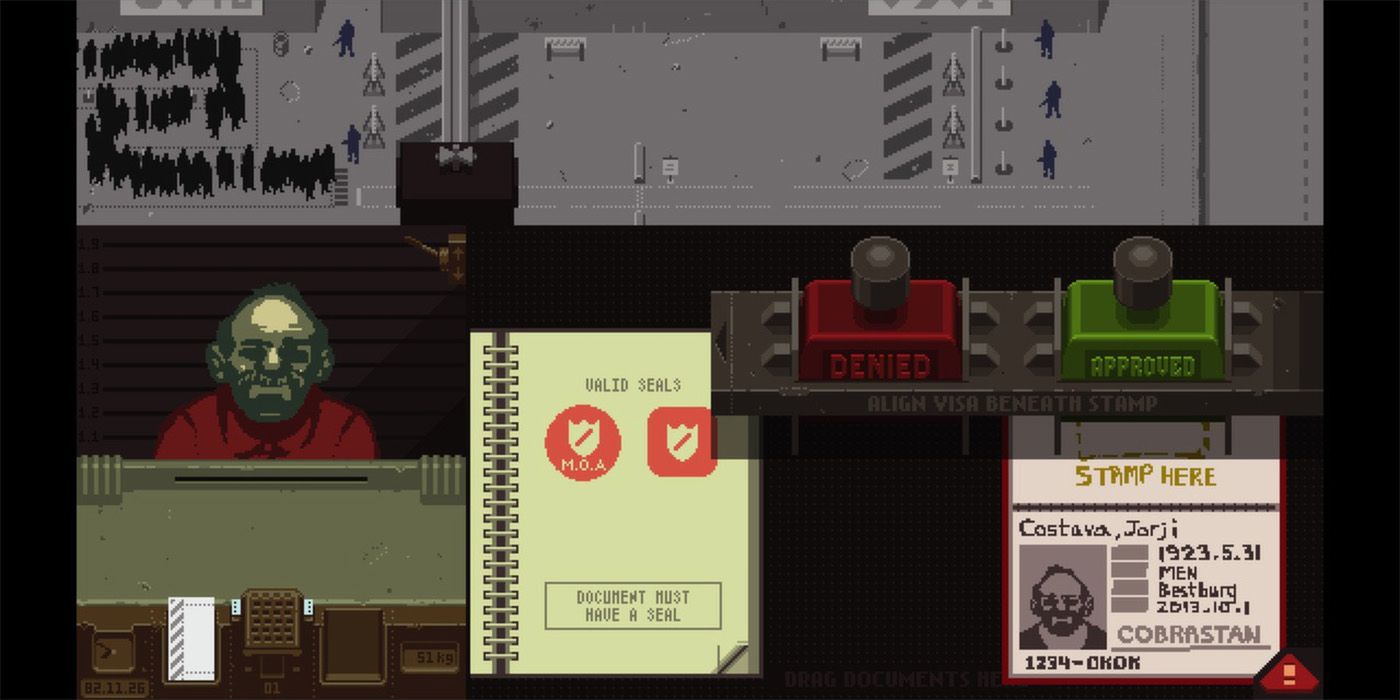As gaming has progressed, expectations for the medium and industry have changed dramatically. Back in the 80's and 90's, a game that completely eschewed gameplay like puzzles or combat in order to provide players a narrative would have been unthinkable. Text adventures such as Zork and Wishbringer were more verbose than other titles, but they still felt the obligation to give the player brain teasing conundrums.
During the advent of CDs and the growing popularity of multimedia projects, developers used the technology to experiment with video games. As 3D capabilities matured, character models got enough polygons and detail to convey expressions, making more emotional tales possible in the medium. This trend never slowed down, and some of today's most popular games focus more on the player's heart than their controller.
10 Valiant Hearts: The Great War Tells A Somber Tale Juxtaposed With Great Art
Utilizing the same UbiArt engine that made Rayman Legends and Child of Light possible, Valiant Hearts: The Great War is a gorgeous, hand-drawn game centered around the perspectives of a cast with different ethnic and cultural backgrounds in their struggles to survive and retain some happiness during the first World War. The cartoony art direction and minimalist dialogue are perfectly juxtaposed with the tragic subject matter. While there are some rhythm-based escape sections and inventory-focused puzzles, the priority of Valiant Hearts is to tell an emotionally resonant tale of what war does to people.
9 The Dark Eye Is A Stop Motion Edgar Allan Poe Anthology
Using a mix of stop motion and CG, The Dark Eye is essentially a compilation horror tale on a CD. The game puts players in the perspectives of both murderer and victim in three Edgar Allan Poe stories: The Cask of Amontillado, The Tell-Tale Heart, and Berenice. Breaking up the stories is an original tale that deals with familiar Poe themes such as love, grief, and insanity. In contrast to other first-person adventure games released at the time, The Dark Eye has no puzzles or dialogue options. Every story is adapted faithfully with no liberties taken to pad the gameplay.
8 Dear Esther Is The Game That Coined A Phrase
In the game that coined the phrase "walking simulator," developer The Chinese Room completely abstained from gameplay mechanics to provide players a tale of deep loss. Dear Esther is set on a remote island in the Hebrides of Scotland, and players must traverse the world and gather clues to follow the story.
As the player explores the island, they come across letters written to Esther and piece together the events that happened. Rather than being backed by a big publisher or crowdfunding, the game's finances came courtesy of a grant from the Arts and Humanities Research Council.
7 Gadget, Invention, Travel, & Adventure Influenced A Filmmaker
Gadget, Invention, Travel, & Adventure puts players in the role of a government agent who's tasked with trailing a group of scientists. As the player gathers information through conversations, they discover that the group believes an apocalyptic event will befall the planet without their intervention. Gadget, Invention, Travel, & Adventure doesn't really sport any brain teasers other than going to the destinations, conversing with characters, and watching numerous CG movies. Acclaimed filmmaker Guillermo Del Toro cited the game as an influence on the movie industry and one of his favorite titles alongside Asteroids and Cosmology of Kyoto.
6 Firewatch Provides Players With A Forest Landscape And Great Dialogue
Firewatch puts players in the hiking shoes of Henry, a forest fire watcher who uses the job as an opportunity to escape the troubles in his life. Gameplay mainly consists of navigating a huge forest to complete the various tasks given to Henry by his boss Delilah. As Henry completes his tasks, he notices someone following him and eavesdropping on his conversations. The player is presented with dialogue options that slowly reveal more about the characters. The banter between the two is bolstered by great writing and rich vocal performances by Rich Sommers of Mad Men and Cissy Jones from Telltale's The Walking Dead.
5 Gone Home Deals With LGBT Themes
Gone Home puts players in the first-person perspective of a college student visiting her childhood home. When she arrives, she finds the place curiously absent, with a note imploring her not to explore the house. From there, the player gathers clues scattered throughout the house to unravel the mystery. The house is littered with references to 90's pop culture, such as a VHS recording of The X-Files and a handwritten move list for Street Fighter II. While detractors lambasted Gone Home as just another walking simulator, critics praised the game for its story and LGBT themes.
4 What Remains of Edith Finch Makes Players Participate In A Character's Demise
What Remains of Edith Finch is a first-person anthology story where the player takes on the role of a girl who explores an old home to learn about her relatives. The player character, the eponymous Edith Finch, is descended from a family who believes themselves to be cursed, as many of them died very unusual deaths. What Remains of Edith Finch is broken up by a series of short, playable vignettes where the perspective shifts to a relative going through their respective demise. Each story gives players a sense of participation rather than just being an entirely passive affair.
3 The Beginner's Guide Provokes Questions About Creation
This early effort from Stanley Parable creator Davey Wreden is a series of short games attributed to a creator named Coda. Wreden narrates and provides color commentary over these games and speculates on Coda's creative intent and the emotional baggage that he may have been dealing with at the time of their development. The Beginner's Guide invites the player to contemplate many questions about the art-making process and the relationship of an artist to their work.
2 Papers Please Puts Players In The Role Of A Bureaucrat
Papers Please is quite possibly the first ever mainstream bureaucracy simulator. Players are tasked with examining the documents and passports of various people who wish to enter a country. However, many of the people who don't have the proper authentication are desperately fleeing from trouble and may come to an unfortunate end if turned away. The player can decide to look the other way and let them through, but every error results in a fine from the government that can prevent players from accruing the necessary finances to feed and shelter their family.
1 The Stanley Parable Satirizes Video Game Narrative
Many games provide players with grand promises of choices and narrative freedom, but the limitations in these titles inevitably rear their heads. The Stanley Parable takes great delight in satirizing gaming storytelling tricks and tropes. The game puts players in the role of Stanley, who discovers one fateful day that all of his coworkers have disappeared. The player is tasked with exploring the office with narration provided by a snarky and seemingly omnipotent being. Players can choose to follow the instructions provided by the narrator or deviate from the path to see what he might be hiding.











